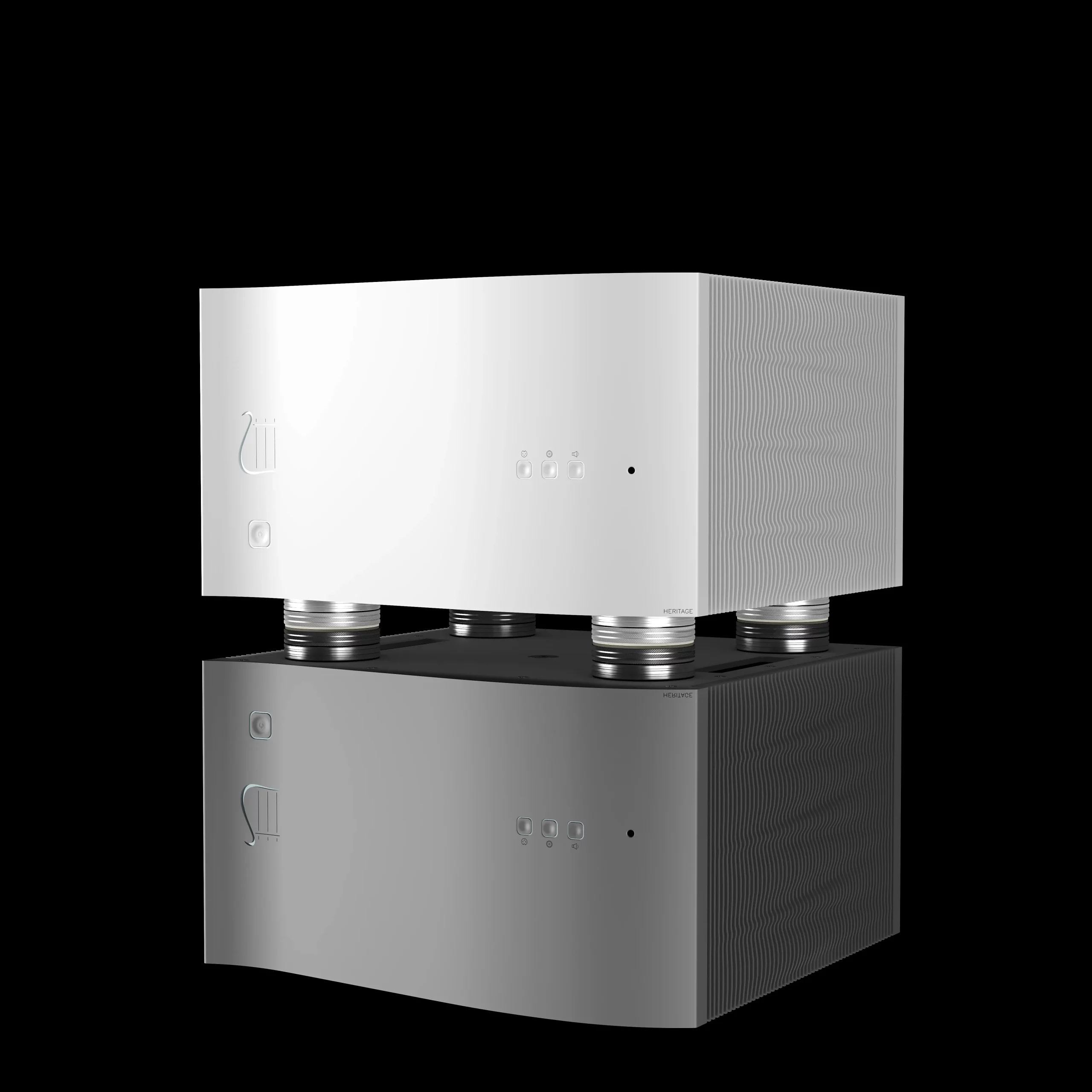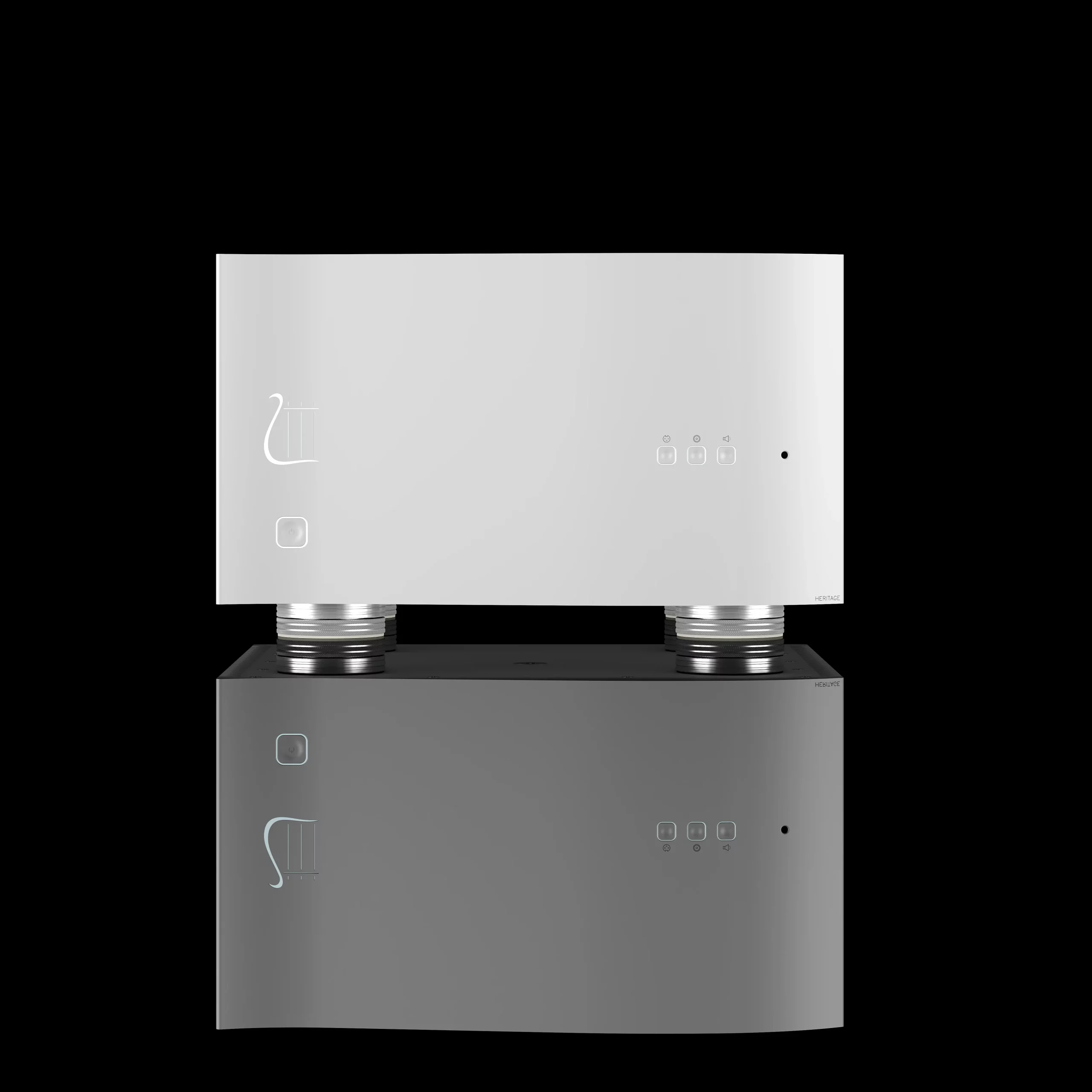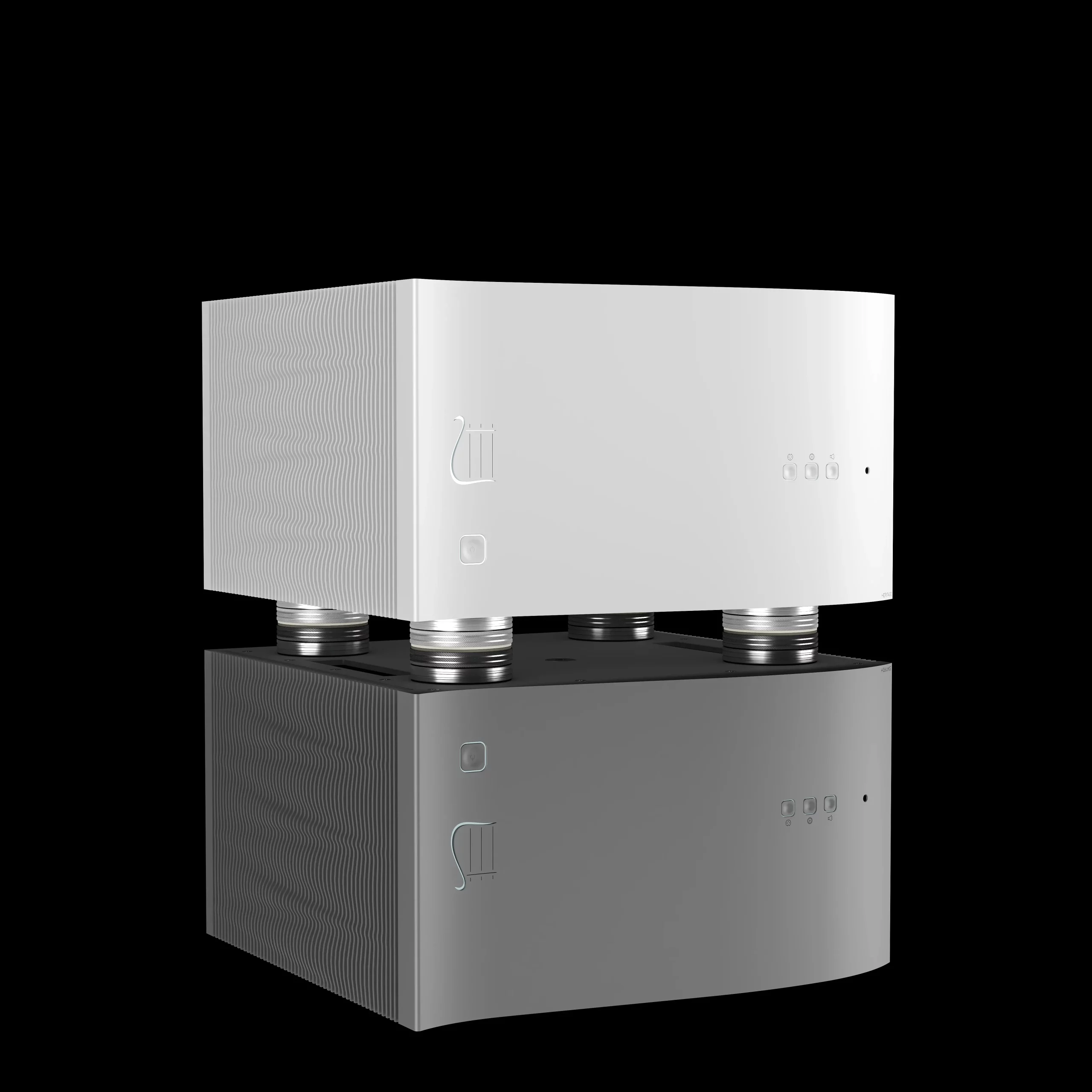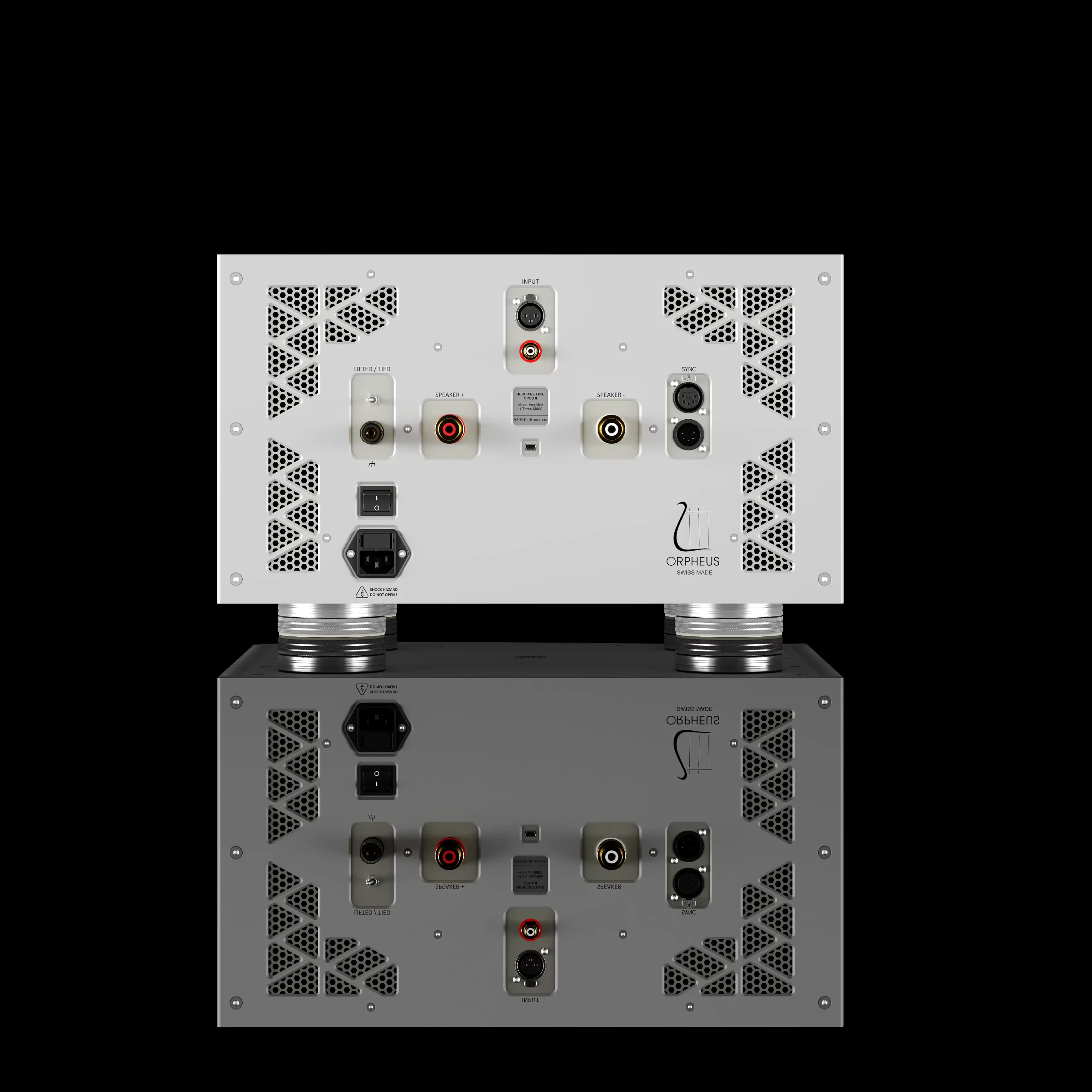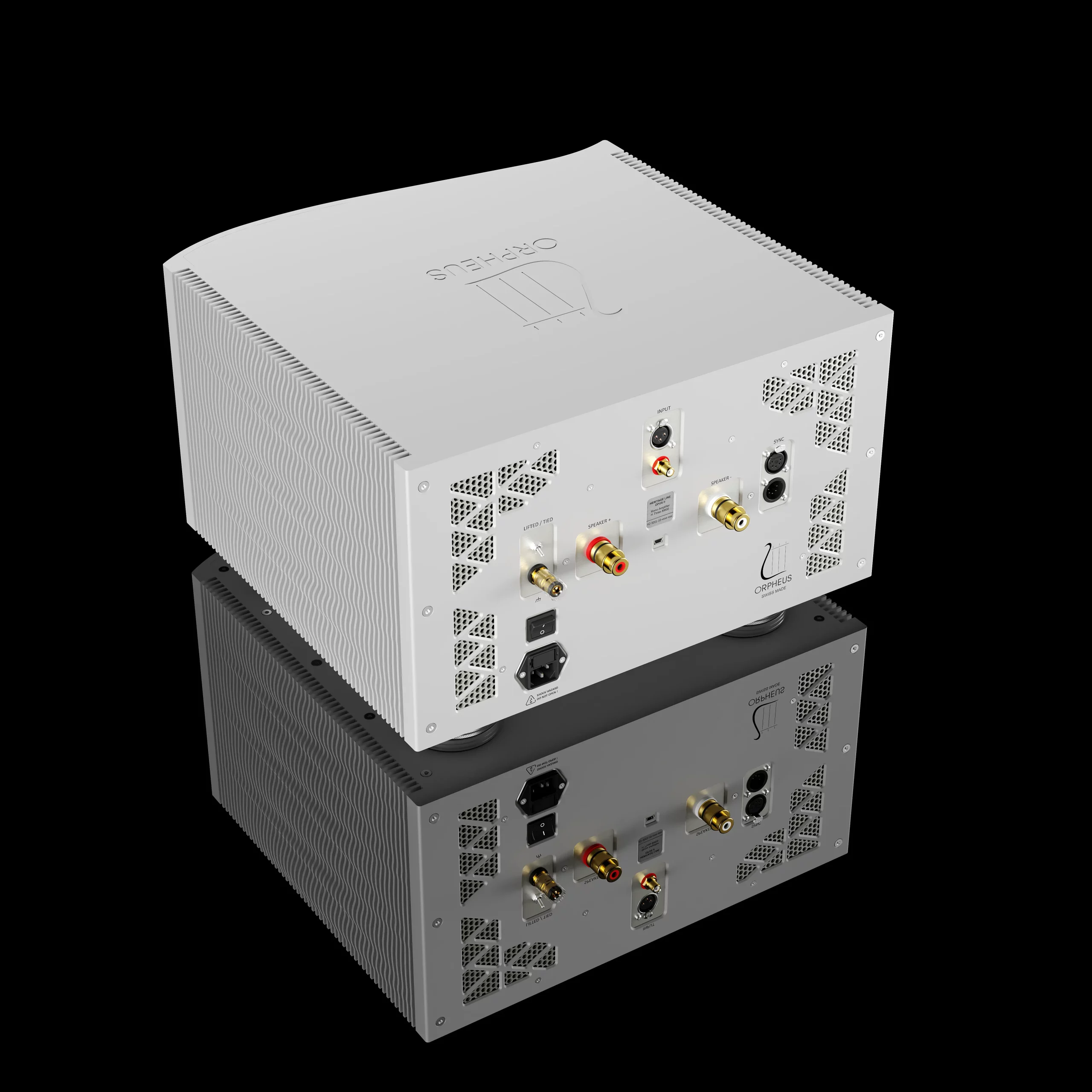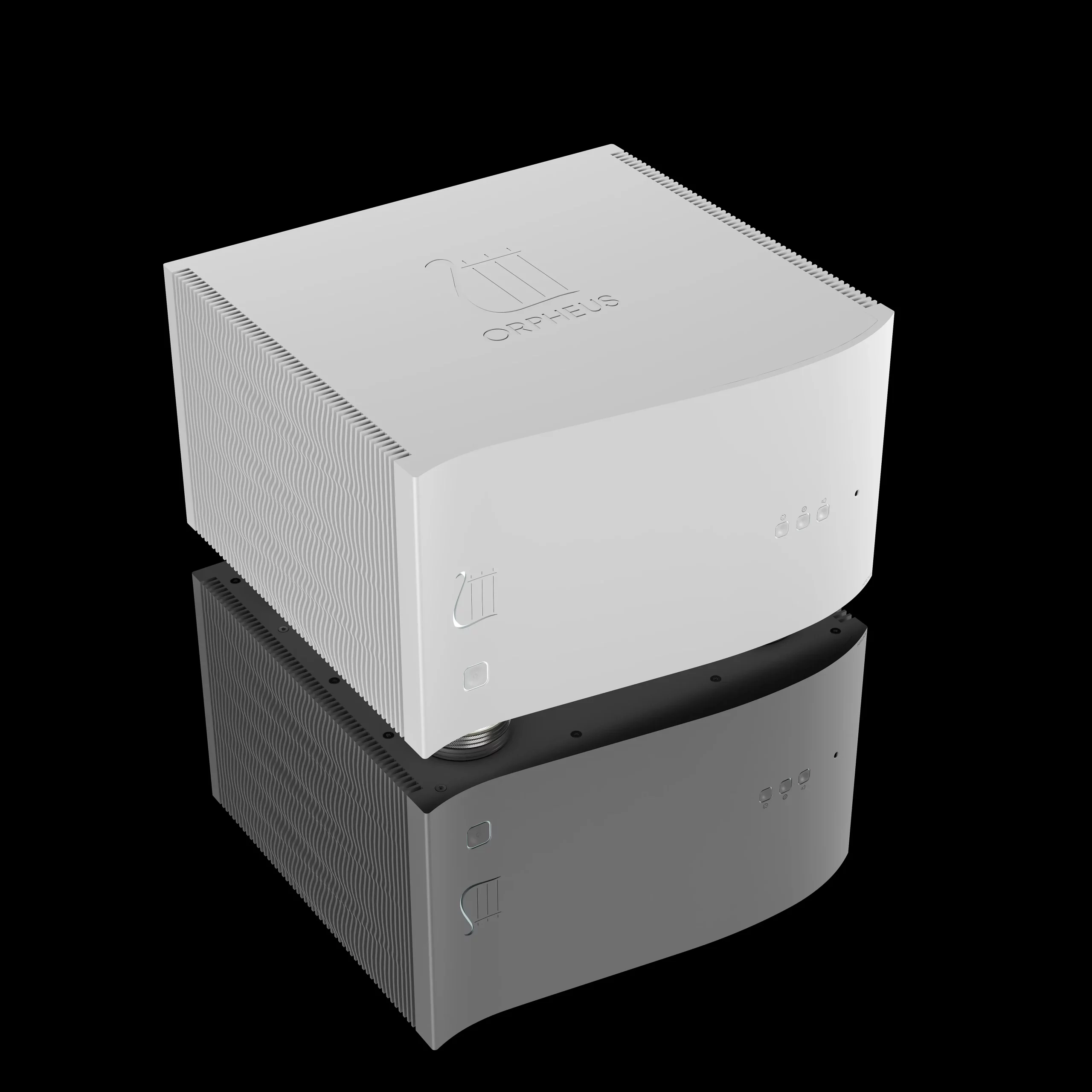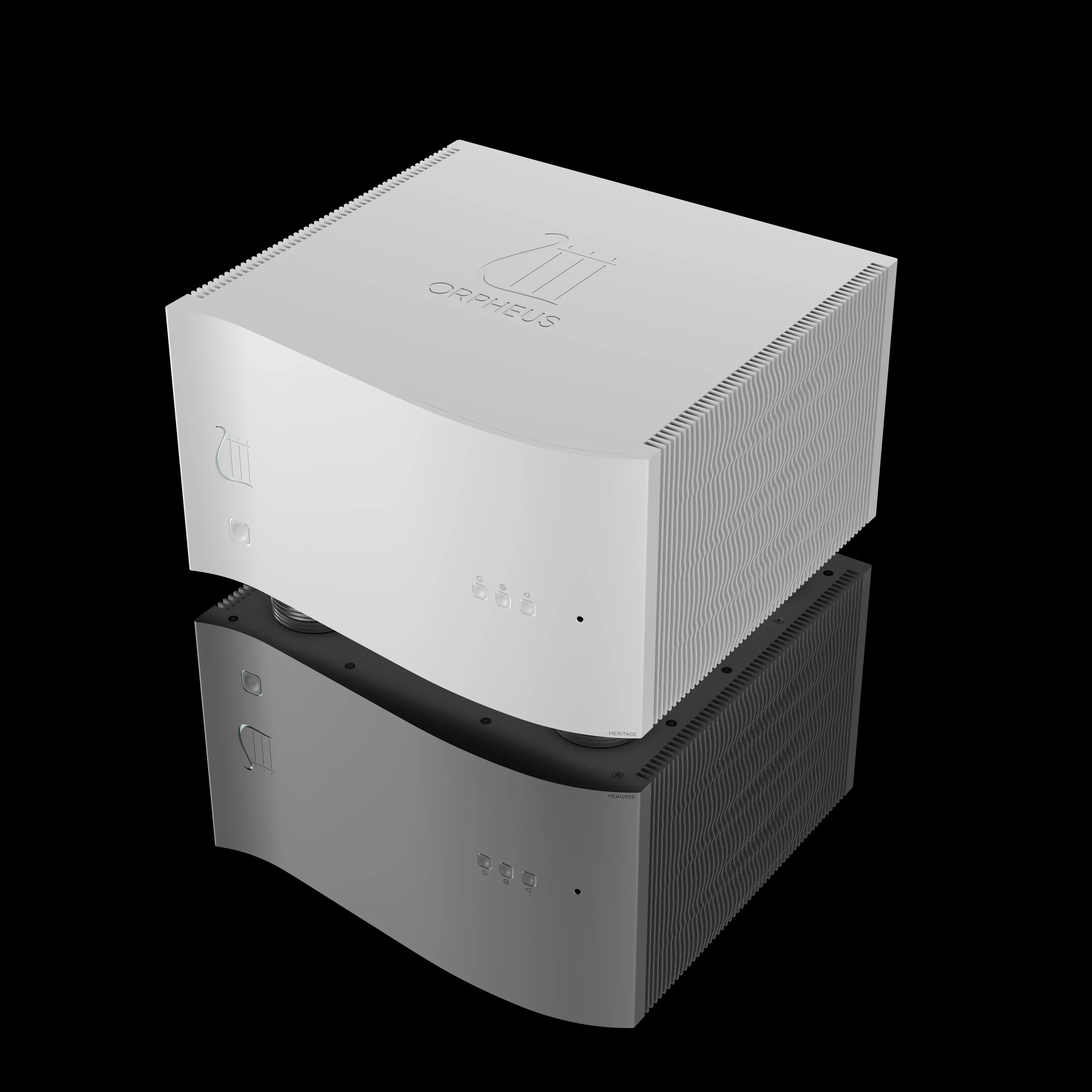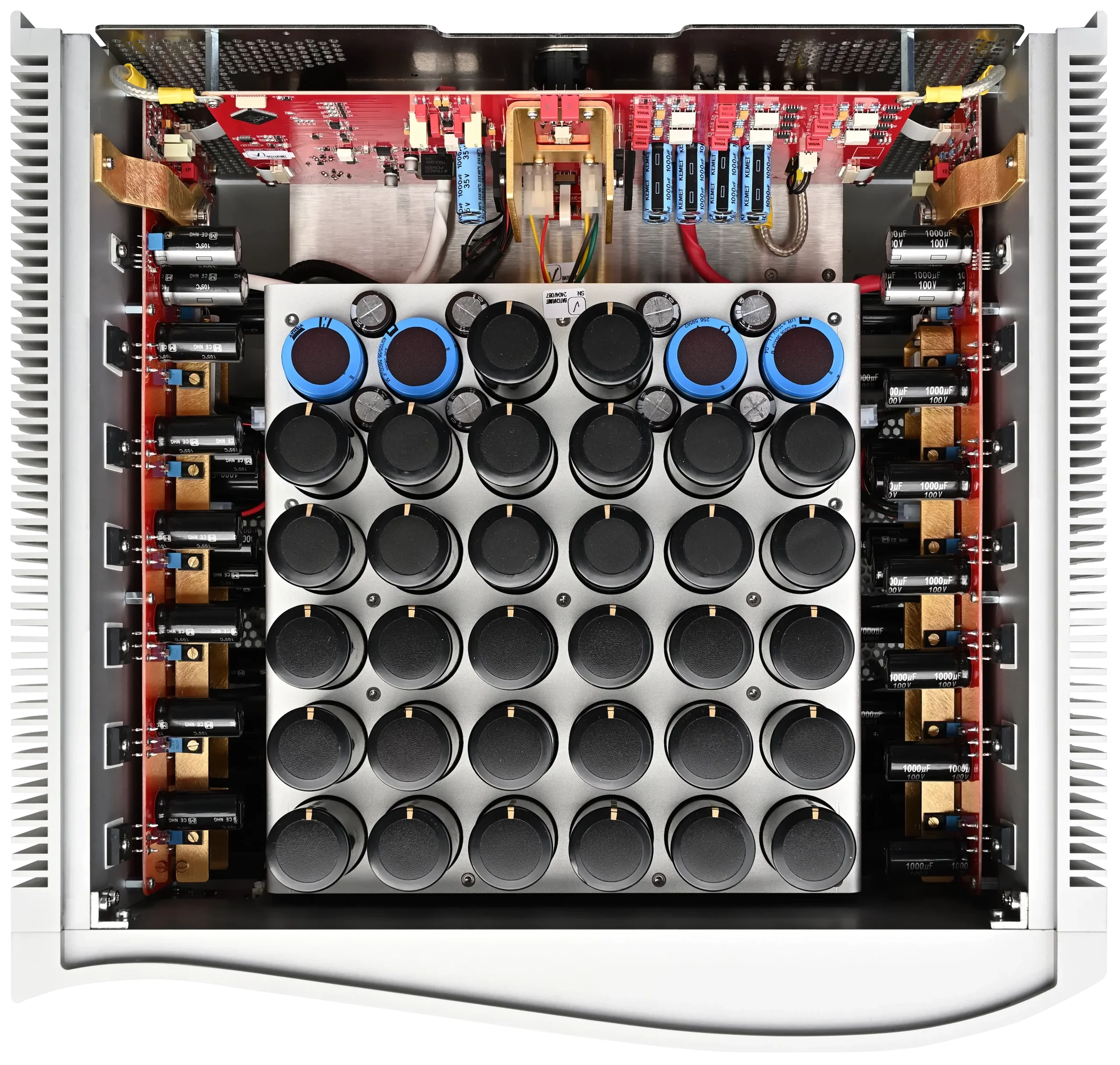H Three M800 Opus II
Monoblock Amplifier Eight Hundred Watts at Four Ohms
Step into the realm of sonic mastery.
Our new amplifier epitomizes the marriage of power and precision, delivering a symphony of sound for a transcendent immersion.
Crafted with passion and dedication to perfection, this amplifier embodies the perfect balance between raw strength and delicate control. From the thunderous lows to the crystalline highs, prepare to embark on a journey of audio enlightenment, where every note resonates with the purity of true craftsmanship, revealing the texture of the sound waves and unveiling layers of detail previously unheard. Create your sound sanctuary, where is the living body of music is materialised.
H Three M800 Opus II
Monoblock Amplifier Eight Hundred Watts at Four Ohms
The Mono-bloc H Three M800 amplifier from the Heritage Line is part of a new opus that redefines what Orpheus has previously achieved. Featuring a current amplification stage driven by twenty-four manually matched power MOSFETs, it can reach instantaneous current peaks of up to forty-five amperes. To ensure optimal control throughout the amplification chain, each MOSFET is governed by a bipolar technology control stage. This approach, combined with a multi-point feedback topology, allows for the precise amount of feedback required to blend musicality with technical performance seamlessly. Consequently, the H Three M800 can adapt optimally to any type of loudspeaker.
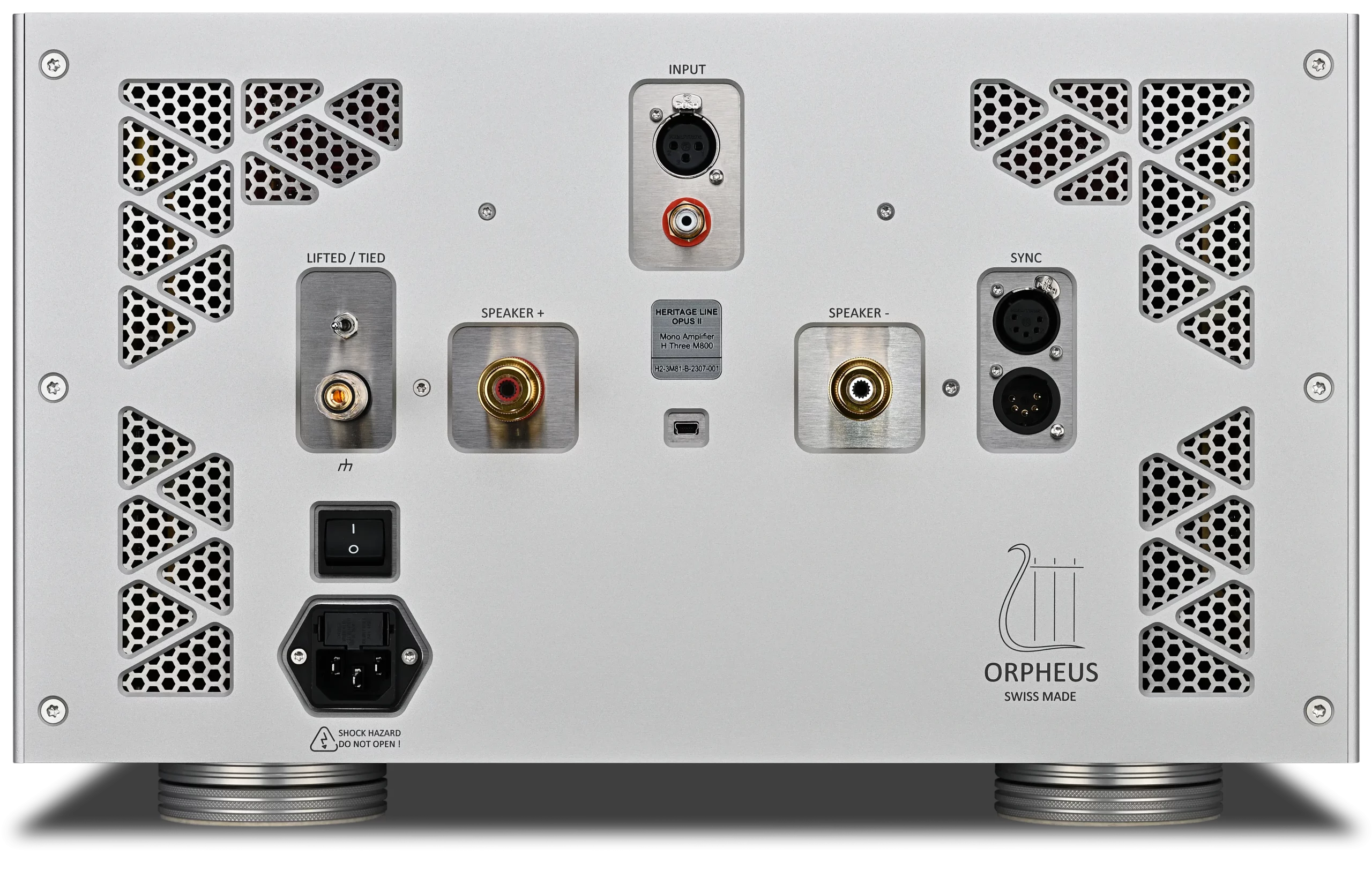
The Class AB architecture is brought to life by a carefully calibrated 480 mA bias current, delivering a thermal idle power of 96 WPC and allowing the amplifier, at rest, to stabilize at 15 °C above ambient temperature.
The polarization circuit ensures optimal biasing regardless of the operating temperature. Furthermore, its low-impedance BJT component architecture maintains constant biasing irrespective of the load type, even at the highest current peaks.
Because musicality comes first and no measuring instrument can rival the human ear in this matter, these technological combinations have been meticulously refined through numerous iterations between laboratory measurements and listening sessions. The result is a purely musical experience, with breathtaking dynamic capability, extremely sharp note attacks, and exceptional openness.
Step into the realm of sonic mastery.
Our new amplifier epitomizes the marriage of power and precision, delivering a symphony of sound for a transcendent immersion.
Crafted with passion and dedication to perfection, this amplifier embodies the perfect balance between raw strength and delicate control. From the thunderous lows to the crystalline highs, prepare to embark on a journey of audio enlightenment, where every note resonates with the purity of true craftsmanship, revealing the texture of the sound waves and unveiling layers of detail previously unheard. Create your sound sanctuary, where is the living body of music is materialised.
H Three M800 Opus II
Monoblock Amplifier Eight Hundred Watts at Four Ohms
The Mono-bloc H Three M800 amplifier from the Heritage Line is part of a new opus that redefines what Orpheus has previously achieved. Featuring a current amplification stage driven by twenty-four manually matched power MOSFETs, it can reach instantaneous current peaks of up to forty-five amperes. To ensure optimal control throughout the amplification chain, each MOSFET is governed by a bipolar technology control stage. This approach, combined with a multi-point feedback topology, allows for the precise amount of feedback required to blend musicality with technical performance seamlessly. Consequently, the H Three M800 can adapt optimally to any type of loudspeaker.

The Hidden Side
The Class AB architecture is brought to life by a carefully calibrated 480 mA bias current, delivering a thermal idle power of 96 WPC and allowing the amplifier, at rest, to stabilize at 15 °C above ambient temperature.
The polarization circuit ensures optimal biasing regardless of the operating temperature. Furthermore, its low-impedance BJT component architecture maintains constant biasing irrespective of the load type, even at the highest current peaks.
Because musicality comes first and no measuring instrument can rival the human ear in this matter, these technological combinations have been meticulously refined through numerous iterations between laboratory measurements and listening sessions. The result is a purely musical experience, with breathtaking dynamic capability, extremely sharp note attacks, and exceptional openness.
TECHNICAL SPECIFICATIONS
| INPUT | |
|---|---|
| Connections | XLR or RCA |
| Balanced input Impedance | 94 kΩ |
| Unbalanced input Impedance | 47 kΩ |
| Balanced input sensitivitye | 2.525 Vrms |
| Unbalanced input sensitivity | 1.162 Vrms |
| Grounding option (unbalanced only) | Grounded: Signal ground is connected to earth Lifted: Signal ground is decoupled from earth |
| OUTPUT | |
|---|---|
| Nominal audio power (AB class) | 800 Wrms @ 4 Ohm 400 Wrms @ 8 Ohm |
| Continuous peak power | 2200 Wpic (max 80.8 Vpic, 28 A pic) |
| Instantaneous power peak (<200 ms) | 3600 Wpic (max 80.8 Vpic, 45 A pic) |
| Bias current | 480 mA |
| Thermal Idle power | 96 WPC |
| Frequency range (+0 dB, -0.1 dB) | 5 Hz to 90 kHz |
| Frequency range (-3 dB) | 0.7 Hz to 165 kHz |
| THD+N @ 800 W into 4 Ohm | 0.0018 % (-95 dB) @ 1 kHz, analysis range 20 Hz to 40 kHz |
| THD+N unloaded | 0.0007 % (-103 dB) @ 1 kHz, analysis range 20 Hz to 40 kHz |
| Clip to Noise Ratio (input Bal) | -123 dB |
| Clip to Noise Ratio (input Unbal) | -123 dB |
| Gain Unbalanced | 33.1 dB (45.28 V/V) |
| Gain Balanced | 27.1 dB (22.64 V/V) |
| Output impedance | 0.0072 Ohm |
| Damping Factor @ 8 Ohm | 1100 |
| TECHNOLOGY USED | |
|---|---|
Unique bias circuit guarantees temperature-compensated bias current | |
| POWER | |
|---|---|
| Nominal line voltage | 100, 115 or 230 Vac |
| Input voltage range | -15%, +10 % |
| Nominal power consumption | 1200 W |
| Standby consumption | Less than 1 W |
| SIZE & WEIGHT | |
|---|---|
| Height | 271 mm |
| Depth | 440 mm |
| Width | 440 mm |
| Weight | 56 kg |
| SAFETY FEATURES | |
|---|---|
Guaranteed power output without any parasitic DC components. Output voltage monitoring circuit that protects the loudspeakers when excessively low frequencies are applied to the input. Output current limited to +-45 A peak. Overcurrent protection: cuts the power output if a current of 28 Apic or more (1250 W at 2 Ohm) remains for more than 200 ms. Automatic mute if sensing a drop in the mains supply voltage. | |
